Known for lush, open-air habitats, Brevard Zoo is currently home to over 900 animals from around the world. When you visit the zoo, you can take part in many interesting activities such as animal feedings, kayak tours, train rides, and aerial adventures. The zoo promises to be an ideal destination for family weekend trips!
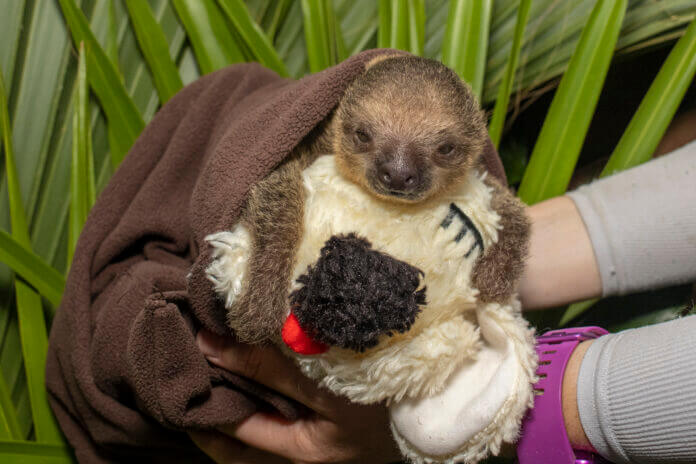
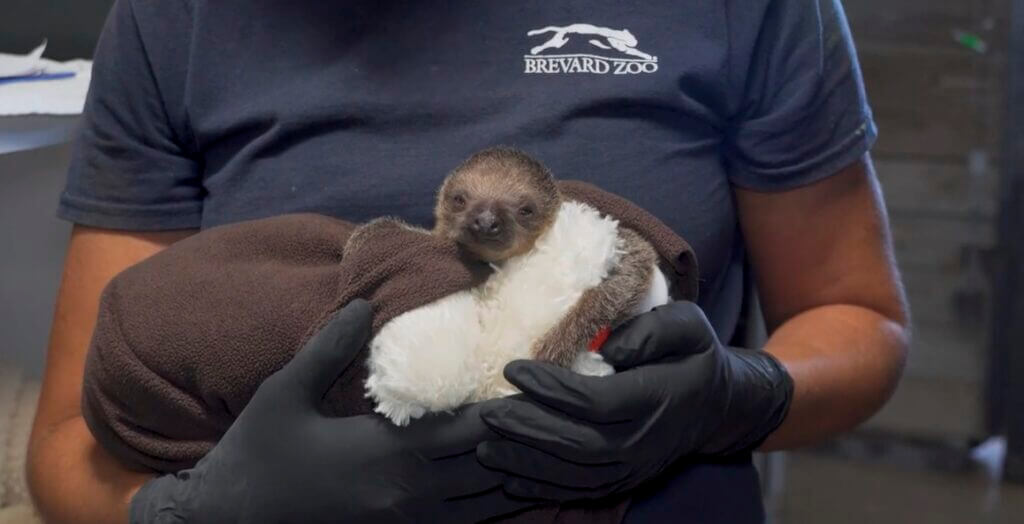
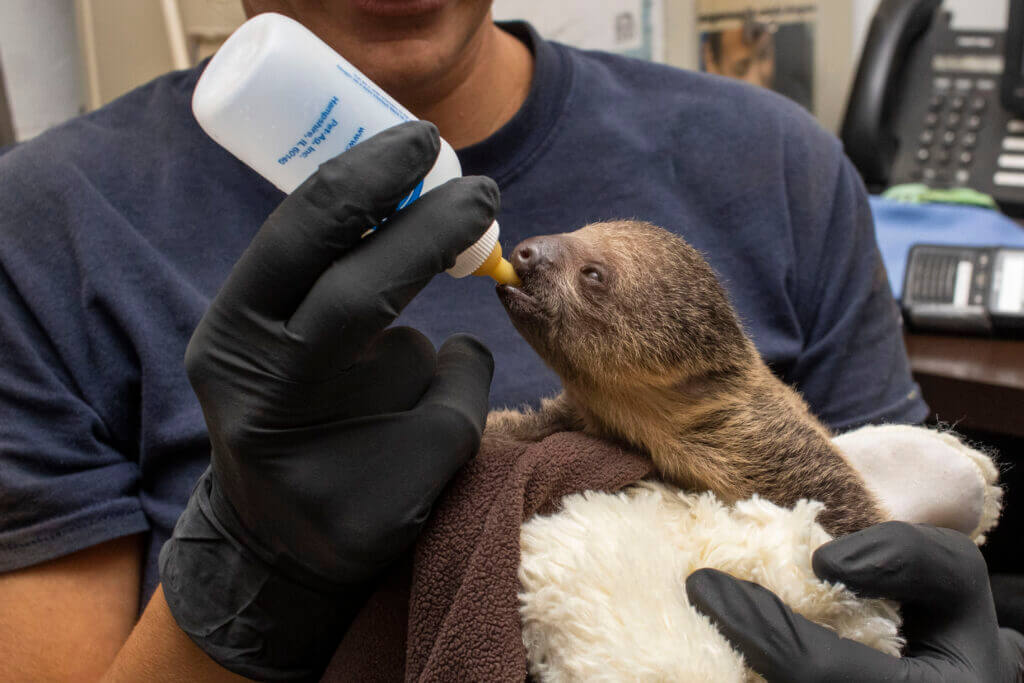
The baby sloth hasn't been named yet. When the zoo gets the result of the laboratory tests of its sex, it will give it an adorable name.
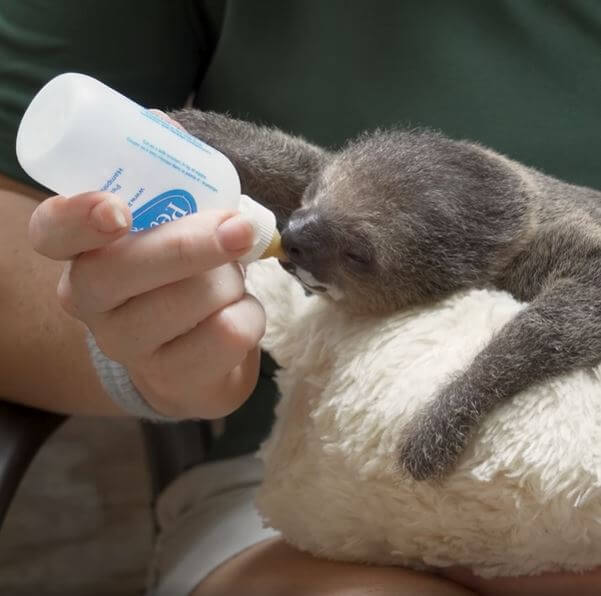
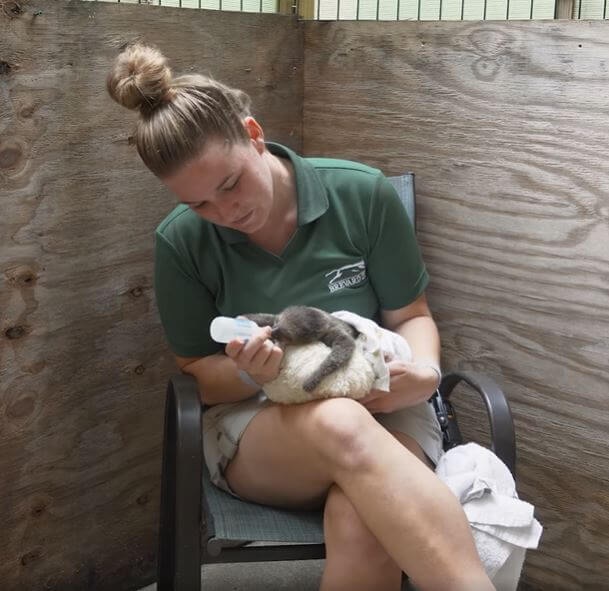
Regarding Linnaeus’s two-toed sloths (also Unau), they are known as the slowest mammals in the world. They inhabit high-up canopies of tropical rain forests throughout Central America and Northern South America and some areas in Brazil and Peru.
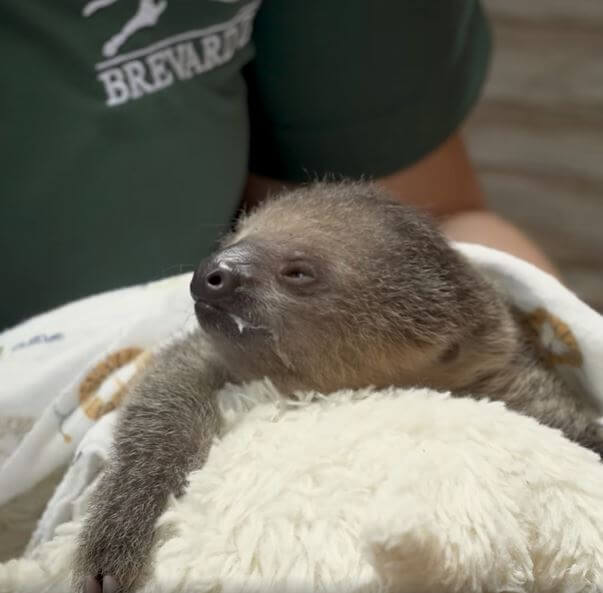
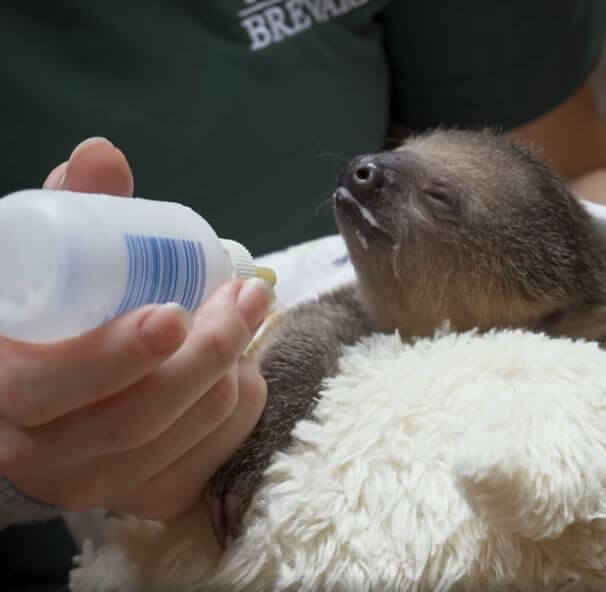
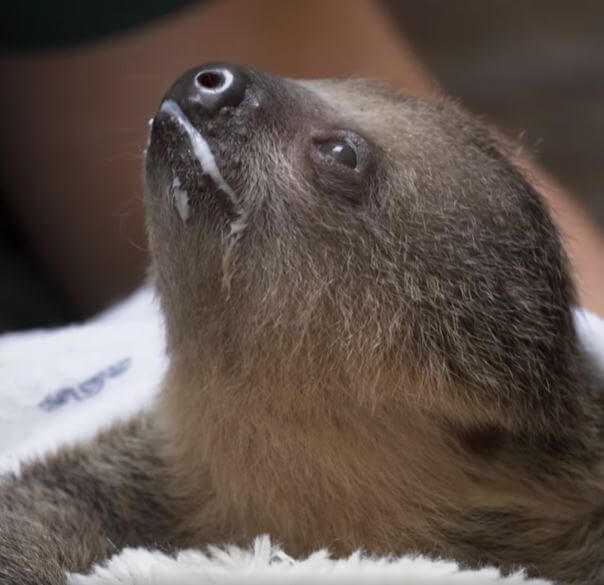

Image source: Brevard Zoo
Recently, the zoo has welcomed the second newborn Linnaeus’s two-toed sloth. It was so excited to announce its newest addition. However, the adorable little one was rejected by its mother. The zoo's staff identified that Tango, the mother sloth, didn't care for the newborn properly. She didn't show her affection for the cub.
Image source: Brevard Zoo
The animal care staff of Brevard Zoo decided to take the cub in. They took care of the baby sloth on their own and gave it special attention. They bottle-fed the animal with goat milk every 3 hours. They even provided the cub with stuffed animals to hold. This would help the sloth feel more protected without its mom.
Image source: Brevard Zoo
The baby sloth hasn't been named yet. When the zoo gets the result of the laboratory tests of its sex, it will give it an adorable name.

Image source: Brevard Zoo

Image source: Brevard Zoo
The poor young animal is doing pretty well now and is on display. Visitors can't get enough of its cuteness.Regarding Linnaeus’s two-toed sloths (also Unau), they are known as the slowest mammals in the world. They inhabit high-up canopies of tropical rain forests throughout Central America and Northern South America and some areas in Brazil and Peru.


Image source: Brevard Zoo
These animals spend most of their time hanging upside down in trees. They can sleep up to 15 to 20 hours per day and only wake up at night to eat.
Image source: Brevard Zoo
H/T: The Koalas